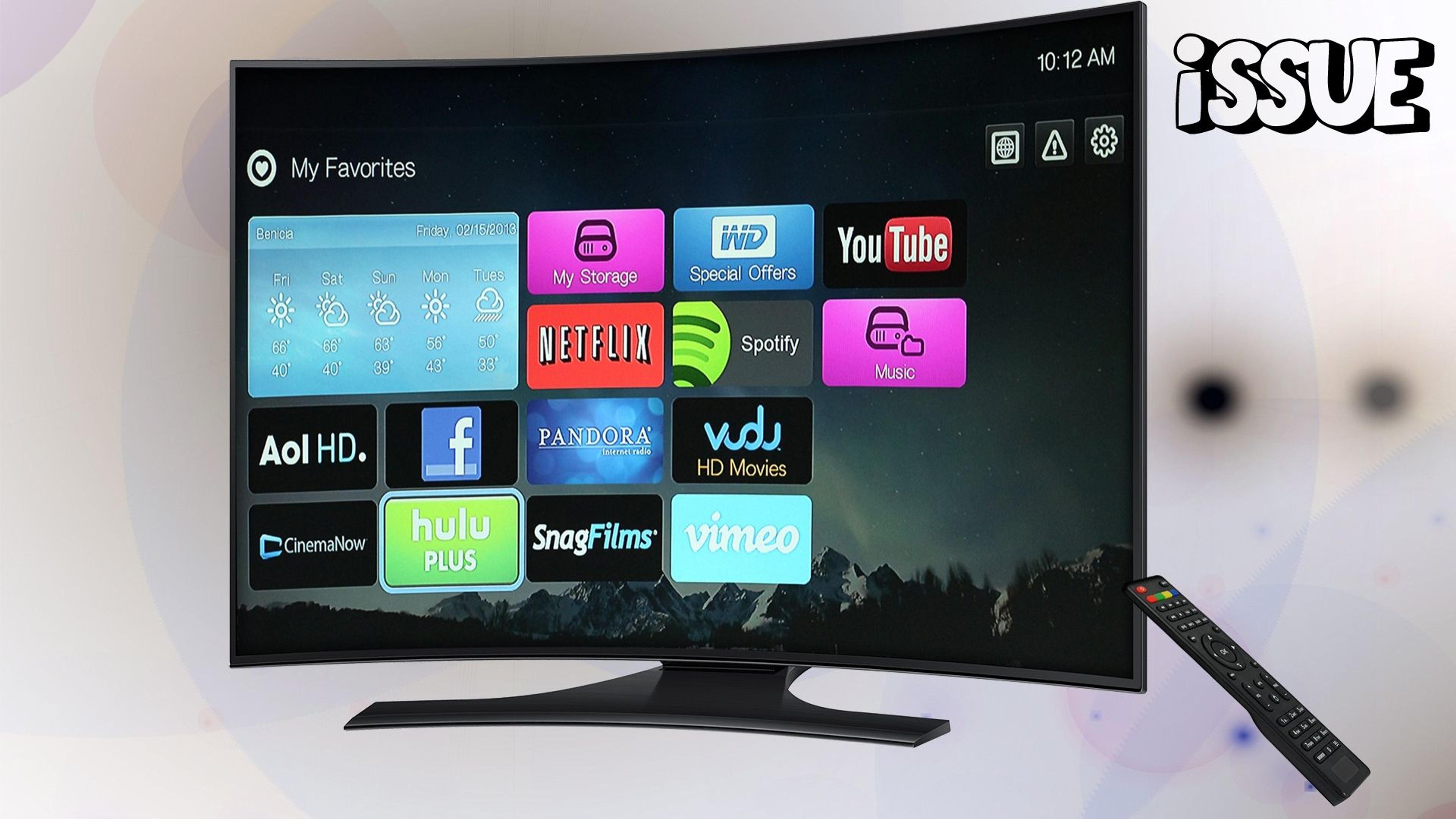It could be annoying and hard to understand if your Element TV is flashing. A moving TV screen can make it hard to watch and make you wonder what's going on.
There are several possible reasons for this flashing, ranging from minor bugs to more severe problems with the TV's system. It could be a loose link, a problem with the software, or even noise from other electronics.
Common Causes of a Flashing TV Screen
If your TV screen flashes, it can be puzzling. Different things can cause this issue. Understanding the common reasons behind a flashing TV screen can help you figure out what's happening. Let's explore them.
1. Loose Cable Connections
2. Software Glitches
3. Electronic Interference
4. Aging Hardware
5. Environmental Factors
6. Identifying the Root Cause
Loose Cable Connection:
Loose cable connections occur when the cables linking your TV to other devices aren't firmly connected. This can lead to flickering on your TV screen.
To fix this, ensure all cables are securely plugged into their respective ports on the TV and the connected devices. Tightening them often resolves the issue.
Software Glitches:
Software glitches happen when there are errors or bugs in the programs running your TV. These glitches can cause your TV screen to flash.
Sometimes, updating the software or performing a reset can fix the issue. However, more severe glitches might require professional assistance to resolve.
Electronic Interference:
Electronic interference occurs when signals from nearby devices disrupt your TV's signal, causing the screen to flicker. This interference can result from smartphones, microwaves, or other electronics.
To reduce interference, try moving electronic devices away from your TV or using shielding materials to block unwanted signals.
Aging Hardware:
Aging hardware refers to the components inside your TV wearing out over time. As these parts deteriorate, they may struggle to function correctly, leading to issues like a flashing screen.
Replacing worn-out parts can sometimes resolve the problem, but it may require professional assistance to identify and fix the specific hardware causing it.
Environmental Factors:
Environmental factors include things like power surges or fluctuations in electricity. These changes in power can affect your TV, causing the screen to flash.
To prevent this, you can use surge protectors or voltage regulators. These devices help stabilize the electricity flowing to your TV, reducing the impact of environmental factors.
Identifying the Root Cause:
Identifying the root cause means finding the main reason behind the flashing TV screen. It involves investigating all possible factors like loose connections, software glitches, electronic interference, aging hardware, and environmental issues.
Because of Faulty Backlight or LEDs
If your TV screen flashes due to a faulty backlight or LEDs, it means there's a problem with the lights inside your TV. Back Lights illuminate the screen, allowing you to see images and colors.
If they malfunction, your screen might flicker or go dim. Similarly, if the LEDs behind the screen fail, it can cause flashing or uneven lighting.
Fixing these issues usually requires professional help, including opening the TV and replacing the defective parts.
Addressing these problems promptly is essential to prevent further damage and ensure your viewing experience remains enjoyable.
Loose Internal Connections
Loose internal connections happen when the parts inside your TV aren't securely attached. This can lead to various issues, including a flashing screen.
Internal connections are crucial for the TV to work correctly because they transmit signals and power between components. If they're loose, signals might not travel properly, causing disruptions like flashing.
Fixing loose internal connections usually requires professional help because it involves opening the TV and reattaching or replacing parts. You need to take care of these problems right away to keep them from worsening and ensure your TV works well for a long time.
Power Supply Issues
Power supply issues occur when there are problems with how electricity reaches your TV. This can cause various issues, including a flashing screen.
The power supply is like the heart of your TV, providing the energy it needs to function. A problem with the power supply, such as a faulty cord or internal components, can lead to instability in the electricity flow, resulting in screen flickering.
Fixing power supply issues often requires professional assistance to diagnose and replace faulty parts. Addressing these issues promptly ensures your TV operates smoothly and safely.
Maybe it is due to Motherboard Failure.
If your TV screen is flashing, it might be due to motherboard failure. The motherboard is like the brain of your TV, controlling all its functions and processes.
If it fails, it can disrupt the regular operation of your TV, leading to issues like screen flashing. Motherboard failure can happen for various reasons, including electrical problems, overheating, or manufacturing defects.
Fixing a motherboard issue usually requires professional help, which involves diagnosing and potentially replacing the problem. Taking care of this problem immediately is essential to stop further damage and ensure your TV works right.
Due to Software Glitches
If your TV screen is flashing, it might be because of software glitches. Software is like the instructions that tell your TV how to work. Glitches happen when there are errors or bugs in these instructions.
They can cause your TV to behave unexpectedly, like flashing the screen. Sometimes, updates or resets can fix software glitches. But if the problem persists, it might need professional help.
Technicians can diagnose and fix the software issues. It's essential to address this problem to enjoy uninterrupted TV viewing. Always remember to keep your software updated to prevent glitches in the future.
Check the Power Source and Cables
Examining the power source and cables is essential to ensure your TV works well. The power source refers to where your TV gets its electricity from, like a wall outlet.
Plugging in something else will show you if the power source is working. Also, inspect the cables connecting your TV to the power source and other devices. Sometimes, loose or damaged cables can cause issues like screen flashing.
Replacing faulty wires or using a different power outlet can help resolve these problems. By checking the power source and cables, you can ensure your TV receives the electricity it needs to function correctly.
Troubleshoot a Flashing TV Screen
It might not be enjoyable when your TV screen flashes, but there are things you can do to fix it. Before you do anything else, ensure the power source and connections are all connected correctly and work.
Next, check whether any wires or connections are loose or broken. This could be the cause of the problem. If the problem still happens, you can restart your TV or ensure its software is current.
Screen flashing can also be caused by things in the surroundings, like power surges. By following these steps to repair, you can find and fix the problems causing your TV screen to flash and get it working usually again.
In Last Words
Experiencing a flashing TV screen can be disruptive and perplexing. However, by understanding the common causes behind this issue, you can effectively troubleshoot and resolve the problem.
Whether it's loose cable connections, software glitches, electronic interference, aging hardware, or environmental factors, identifying the root cause is vital to finding a solution. While some issues may require professional assistance, others can be addressed with simple troubleshooting steps.
Frequently Asked Questions
About Hamza Liaqat
Hamza Liaqat, our tech maestro, is a software engineer with a passion for cutting-edge technologies and experience of more than 7 years in tech industry. As the founder of DifferentDaily.com, he navigates the tech frontier, unraveling AI, Blockchain, and Web3 intricacies. Hamza's troubleshooting finesse and commitment to practical solutions make him your go-to guide for all things tech. Welcome to innovation, curated by Hamza Liaqat.


